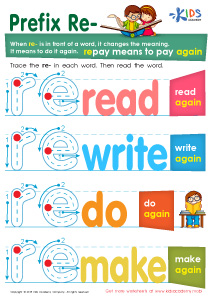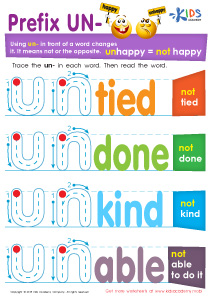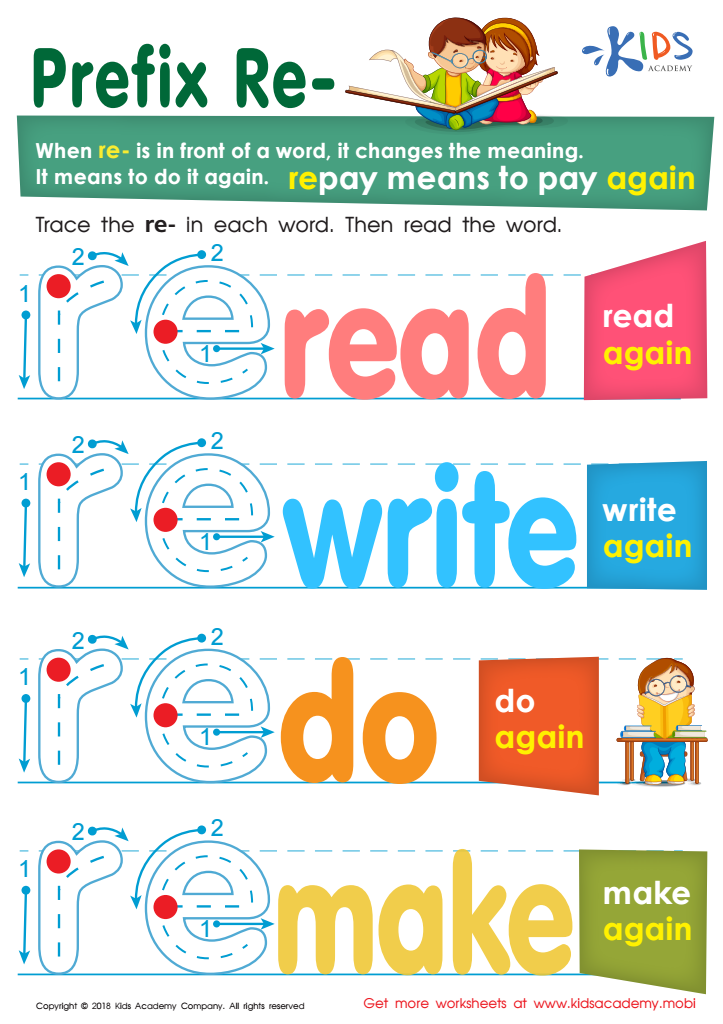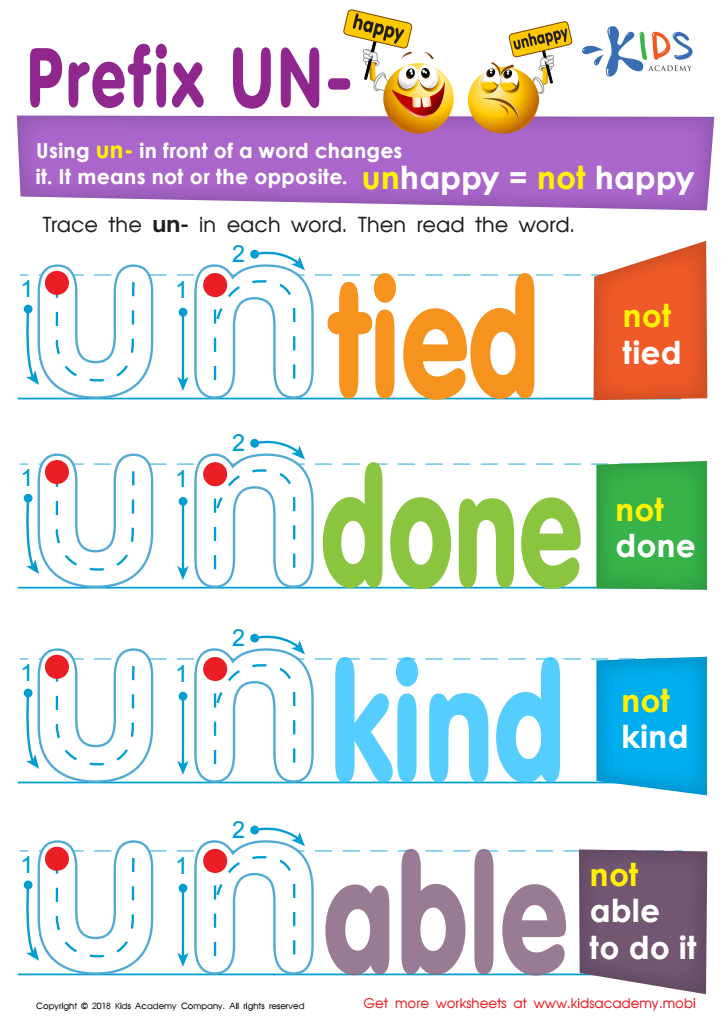Identify the Meaning of Common Prefixes - Lesson for Grade 2, Chapter - Decoding Words
In this lesson titled "Identify the Meaning of Common Prefixes," part of the "Decoding Words" chapter under the "Accuracy and Fluency" unit, second-grade students will delve into the fascinating world of word parts, specifically focusing on base words, prefixes, and suffixes. They will get a closer look at some of the most common prefixes, including "-un," "-re," "-dis," and "-bi," which play a crucial role in altering the meaning of base words. Through engaging activities like the Prefix Re- Worksheet and Prefix Un- Worksheet, students will learn how to accurately identify and apply these prefixes, enhancing their word comprehension and decoding skills.
Understanding prefixes is important because it empowers students to decipher unfamiliar words, enriches their vocabulary, and improves their reading fluency and comprehension. By grasping the concept of prefixes and how they modify the meaning of base words, students will be better equipped to tackle challenging texts and express themselves more precisely in both oral and written communication. This foundational knowledge is crucial for their ongoing language development and academic success across various subjects.




-
Activity 1 / Word Parts: Base Words, Prefixes, and Suffixes
-
Activity 2 / Prefixes: -un, -re, -dis, -bi
-
Activity 3 / Prefix Re- Worksheet
Prefixes are words which are added in front of another word to change its meaning. Most times, when re- is added to the front of another word, it changes its meaning to become ‘to do again’. Give your child some more examples of the re- prefix such as repay, which means to pay again, restart, which means to start again, as seen in this worksheet. Now, hold your little one’s hand and trace the re- in each word, then read the word aloud together with your child.
-
Activity 4 / Prefix Un- Worksheet
When another word is added to the front of a word, the meaning of the word changes. Usually, it changes into the opposite of what the original word meant, or into a word that negates the original word. For example; unhappy means not happy, unserious means not serious. Give your child some more examples to make sure that they completely understand what you are trying to teach them. Then, help them trace the un- in each word, and read the word aloud with them.



